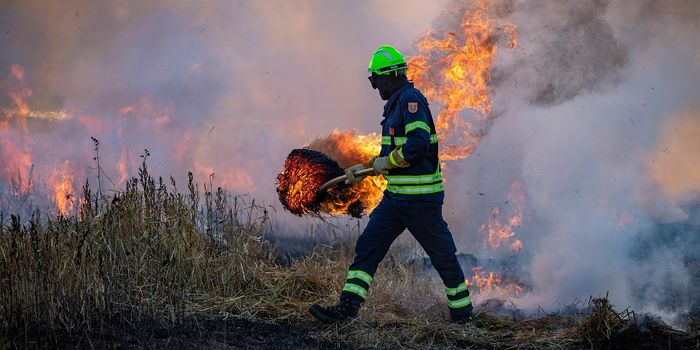Genes Responsible for Infant Bronchiolitis Identified
Infants under just one year old are at risk for acute viral bronchiolitis, a respiratory infection that in the worst cases can result in hospitalization, supplemental oxygen, mechanical ventilation, and even death. Researchers from the State University of Campinas in Sao Paulo State, Brazil have now identified several genetic factors associated with the most severe forms of this disease.
Acute viral bronchiolitis is the most common disease affecting babies during the first year of life. It is characterized by acute wheezing and other typical signs of a respiratory infection, caused by inflammatory damage in the bronchioles. Bronchiolitis results in hospitalization one to three percent of the time, with some patients requiring supplemental oxygen and mechanical ventilation.
Risk factors for bronchiolitis include prematurity, history of lung disease, and passive smoking, but often, people with no risk factors develop the disease anyway. Researchers from the present study were looking for genetic factors associated with the most severe forms of the disease from patients who did not present these risk factors.
"Detecting genetic associations in cases of acute viral bronchiolitis is the first step toward the development of tests to predict the possible clinical outcome for each patient diagnosed with the disease soon after arrival at the emergency room," explained study author Fernando Augusto de Lima Marson.
Researchers evaluated 181 children diagnosed with acute viral bronchiolitis and given oxygen therapy at the hospital. They took samples from nasal secretions to identify the specific virus responsible for the infection. For 69.9 percent of infections, the culprit was respiratory syncytial virus (RSV), and for 26.5 percent of infections, the culprit was rhinovirus. A large majority of the children were not in any risk group for the disease.
They also looked for single nucleotide polymorphisms (SNPs), changes in the DNA. Then they compared SNP frequency between patients and a control group of 536 healthy individuals between 19 and 25. They found a link between two SNPs, one in bronchiolitis caused by RSV and one in bronchiolitis caused by rhinovirus. These DNA variations were associated with very severe cases of disease, progression to a fatal outcome, and a need for oxygen supplementation and ICU admission, sometimes mechanical ventilation.
Marson said that the study “provides evidence of a link between the patient's genetic predisposition and the severity of the disease. As far as we're aware, it's the first study worldwide to show this in such detail, including a large number of genetic variants."
The present study was published in the journal Gene.
Sources: Georgian Medical News, Sao Paulo Research Foundation









